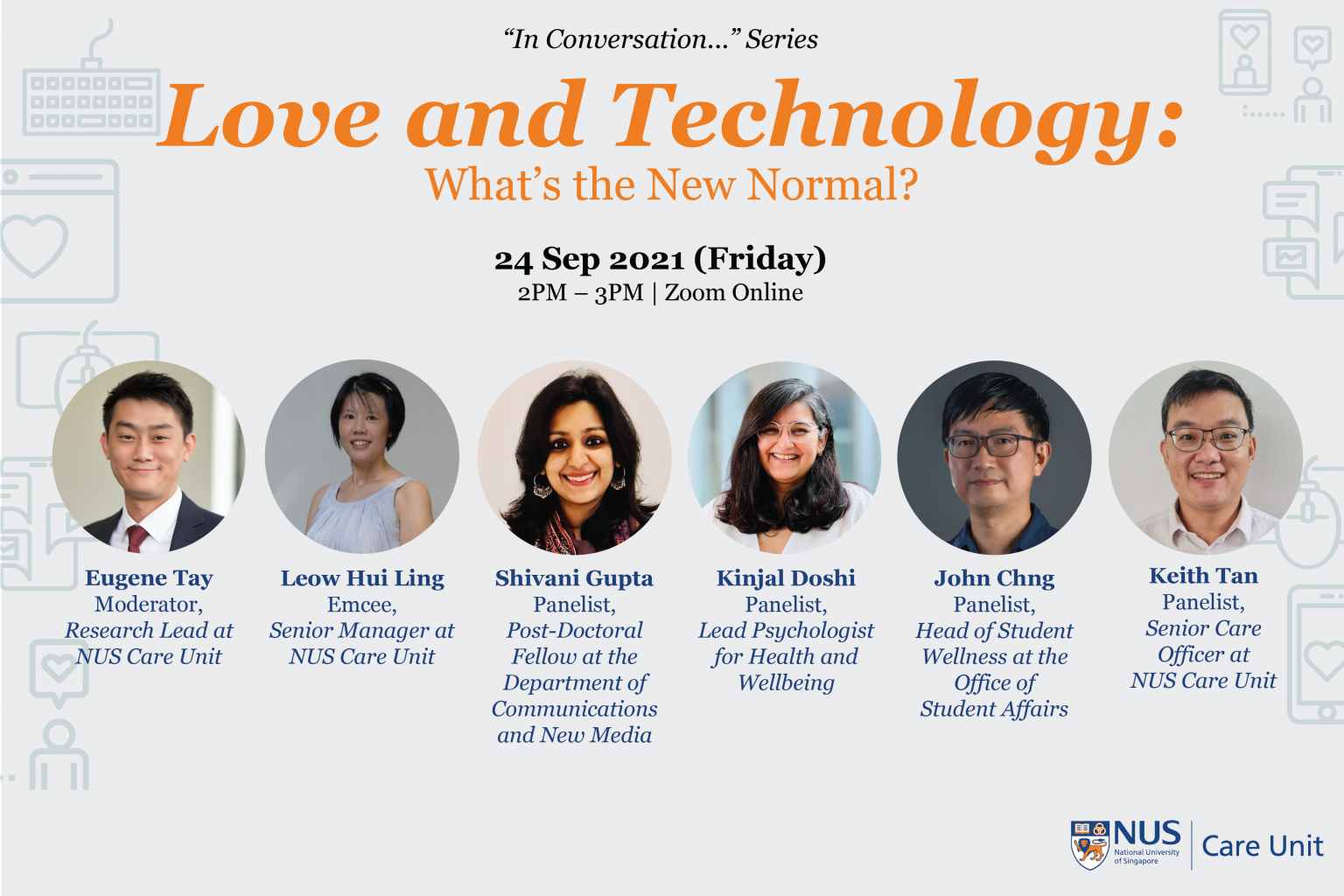3 Nov 2021 | Events – “In Conversation…” Series

By: Vanessa Ow Yan Lin
In this third episode of NCU’s “In Conversation…” series held on 24 Sep 2021, we invited panelists across various NUS departments to discuss the increasing reliance on technology to facilitate social interactions and the impact this has on social relationships.
The discussion was moderated by Dr. Eugene Tay (Research Lead, NUS Care Unit) and was joined by Dr. Shivani Gupta (Post-Doctoral Fellow, Department of Communications and New Media), Dr. Kinjal Doshi (Lead Psychologist, NUS Health and Wellbeing), Mr. John Chng (Head of Student Wellness, Office of Student Affairs) and Mr. Keith Tan (Senior Care Officer, NUS Care Unit).
Dr. Shivani Gupta kicked off the session with a discussion on the rising cases of technology facilitated sexual violence (TFSV) and highlighted the lack of sufficient measures implemented to address these emerging forms of sexual misconduct. TFSV is enabled by digital communications technologies and ranges from cyberstalking to image-based sexual abuse.
According to Dr. Gupta, there is a general lack of awareness about TFSV and its impact on survivors. In her research on campus sexual misconduct in the digital age (CASMIDA), she observed that TFSV survivors rarely articulate their experiences as sexual violence.
While TSFV involves technological aspects, such misbehaviours may shift into the physical space and manifest as physical harm. This fluidity is also why TFSV and its behaviours have been poorly defined and measures to effectively protect people are somewhat lacking.
Mr. John Chng weighed in on the effects of home-based learning on students, including feelings of loneliness and isolation.
Reflecting on the same observations, Dr. Kinjal Doshi noted how work-from-home arrangements can increase the risk of misunderstandings in workplace communications due to the absence of important facial and social cues that normally pervade in-person interactions.
Both panellists also shared how their respective teams have been able to tap on digital resources and technologies to provide mental health support for NUS staff and students.
Mr. Keith Tan also shared how technology-mediated communication channels have facilitated NCU in reaching out to survivors. He explained the benefits of new modes of communications to survivors, including greater accessibility, convenience, privacy, and comfort.
In closing, when asked by one participant on how we can identify whether we have been subjected to TFSV, Dr. Kinjal and Keith advised that speaking to someone we trust or a care professional from the NCU can help people better understand the incident and make sense of their feelings.
Overall, science and technology will continue to march on. As technology develops and begins to pervade human relations, so must our understanding of respect and consent in the digital space. Only then can we learn to encourage a safe, meaningful, and genuine connection with others online.
If you or someone you know is affected by sexual misconduct, please reach out to NCU for support by calling our sexual misconduct helpline (+65 6601 4000) or emailing us at ncu_help@nus.edu.sg.

